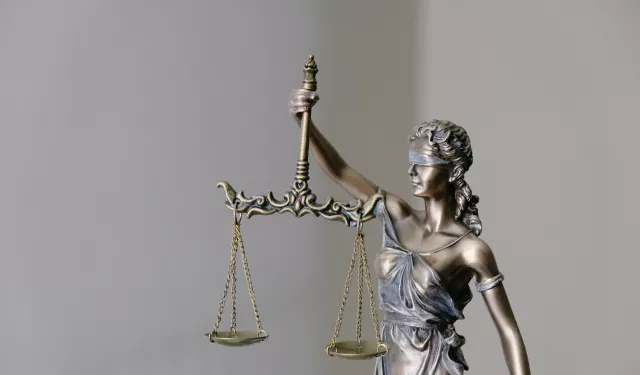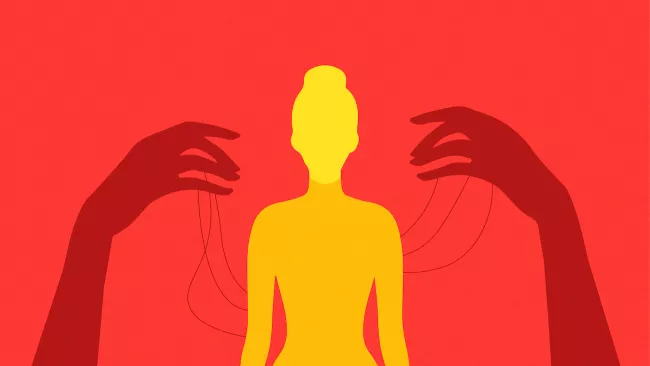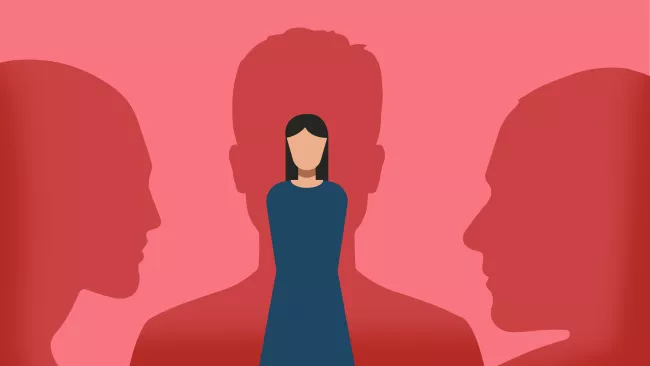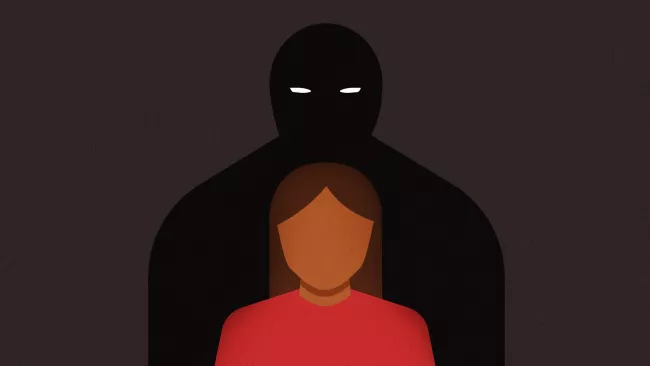
Feminist Investigation Committees: An alternative path to justice
In 2020, the Association for Freedom of Thought and Expression/AFTE found itself at the heart of a storm.
One of its employees publicly confessed on social media to committing acts of sexual abuse against multiple survivors. His admission came amid a wider wave of public disclosures from women within civil society and political circles, many sharing experiences of sexual violence and gender-based discrimination.
AFTE initially rejected the employee’s resignation, insisting on investigating the claims before accepting it. He was later dismissed following a new complaint from another survivor.
Soon after, a former employee accused the organization’s former executive director of verbal abuse rooted in gender discrimination. This escalated into wider allegations that AFTE failed to provide a safe work environment and lacked clear anti-discrimination and sexual misconduct policies.
To address the growing accusations, AFTE formed an independent investigation committee to find out about acts of sexual violations and administrative abuses, as well as the lack of a safe and equitable environment for women within the civil society organization/CSO.
A parallel path to justice
While AFTE’s initiative was not unprecedented, it marked a significant moment in the evolution of what some activists describe as an alternative justice track. In Egypt’s civil society circles, independent investigation committees have increasingly become a popular means of addressing sexual harassment instead of resorting to the judicial system.
These committees, once considered informal or “customary,” have gained legitimacy over time.
As reports of sexual violence within civil society spaces have grown more frequent, rights advocates tell Al Manassa that informal investigative practices have become an integral part of how such cases are addressed.
They see these mechanisms as tools of feminist organizing aimed at achieving the absent justice in the courtroom. The international labor standards, such as ILO Convention 190, calls for concrete measures to combat violence and harassment at work.
Azza Soliman, feminist lawyer and chairperson of the Center for Egyptian Women’s Legal Assistance Foundation/CEWLA, told Al Manassa this model gained traction in 2015, following the internal reckoning at the anti-harassment initiative “Shoft Taharrosh.”
That year, several members resigned over what they described as systemic abuse within the group, which had been seen as a vanguard in the fight against harassment.
Soliman, who was on investigation committees at the time, recalls hearing testimony about serious administrative violations, gender-based discrimination, and covert filming of female participants. The committees were composed of a large and diverse group of legal and gender experts.
One of the most high-profile incidents involved a former employee of the Egyptian Center for Economic and Social Rights/ECESR who accused lawyer and then-political figure Khaled Ali of sexual harassment, along with another colleague.
This complaint, dubbed the “email girl” case in media circles, became a flashpoint in 2018 due to its political overtones and Ali’s presidential aspirations at the time. Though the committee ultimately cleared him of harassment, the incident led to his resignation from both the Bread and Freedom Party and ECESR.
Weathering the storm
In the AFTE case, the independent committee held several sessions over five months. Their final report recommended that implicated employees issue public written apologies for their abusive behavior, and that AFTE receive and respond to compensation requests from survivors.
AFTE quickly developed and adopted a new anti-sexual violence policy, set up an internal complaints committee, and hired a gender expert in accordance with the recommendations of the investigation committee.
“We published the recommendations on our website, and activated all mechanisms to improve the work environment,” AFTE Executive Director Mohamed Abdel Salam told Al Manassa. These steps, he added, created a clear and transparent path for handling complaints.
According to him, the effectiveness of these measures was tested in 2022, when an internal complaint led to the dismissal of an employee found guilty of harassing two women.
Abdel Salam emphasized that abuse can happen anywhere, even in CSOs. “People assume violations can’t occur in advocacy spaces, and that perception undermines efforts to build internal accountability,” he said.
AFTE no longer relies on external committees, opting instead for an internal protocol based on the lessons of its crisis.
Despite its expertise in forming investigation committees, CEWLA resorted to an external committee after it suspended a staff lawyer following allegations surfaced from Nesma El-Khatib, founder of the Sanad initiative for women’s legal support, who accused him of sexually harassing a friend.
“Despite the incident occurring before his employment, the center suspended him and formed an external committee to uphold transparency,” Soliman said.
“Even though we could have handled the case internally given our experience, we chose to involve external experts to ensure neutrality,” she explained.
Moral reparation
In the above-mentioned incidents, the situation appeared to be exemplary and highly transparent, with the accused admitting their mistakes and the institutions committing to publishing the findings of the investigation committee.
But this is not always the case. In other incidents, the accused refused to acknowledge the findings of the independent committee.
In one case, writers and former employees accused the owner of a publishing house in Cairo of harassment and announced via Facebook posts that they would no longer cooperate with the house, claiming it was not a safe environment for women in the cultural field. The owner expressed his willingness to submit himself and his team to an investigation by an independent committee.
The committee—comprised of Soliman, lawyer Mahienour El-Massry, and feminist writer Zeinab Khair—found that the publisher had physically and verbally harassed three women and stalked a fourth. Yet before the final report was released, he withdrew his consent, claiming bias.
“He contested the committee’s neutrality because one of us came from the same governorate as a complainant,” Soliman said, calling the objection baseless and aimed at derailing the process. Despite the publisher’s withdrawal, the survivors said the committee’s findings were a form of moral reparation.
The right to litigation
Soliman, an expert on investigative committees, explained that committees reach conclusions and deliver them to whoever mandated the investigation, but what happens next is out of their hands. Survivors, she stressed, have an inherent right to take cases to court.
This idea of pursuing justice through various avenues is echoed by Lobna Darwish, gender officer at the Egyptian Initiative for Personal Rights/EIPR, who sees no contradiction between legal and informal justice paths. “Multiple avenues empower survivors,” she told Al Manassa. “The more mechanisms available for redress and reparations, the better.”
Similarly, activist Elham Eidarous agrees, emphasizing that these panels don’t aim to replace the judiciary but to offer more accessible justice in a system fraught with hurdles.
Many of these cases don’t end with the release of investigative committee findings, even when those findings favor the complainants and confirm they were subjected to harassment.
As writer Ayah Tantawi, a complainant in the publisher case, told Al Manassa, she was heartened by the panel’s findings but remains open to pursuing legal action. “The report gave me a sense of justice, but the legal fight might still happen—even 10 years from now, because harassment is not subject to a statute of limitations,” she said.
Ayah had never resorted to an investigation committee before and had fears that sexual harassment would not be proven, but she agreed to it when the owner of the publishing house proposed this procedure to adjudicate complaints, noting that these fears were dispelled as the committee began its work.
The case sparked wider debate in Egypt’s literary scene and prompted the Publishers Association to draft a new code of ethics to address harassment and discrimination. Though the code is nonbinding, Nadaa Nashaat, adocacy coordinator at CEWLA, welcomed it as a step towards a safer work environment.
“This case stirred internal movement within cultural circles and prompted the Publishers Union to step in amid the absence of internal investigation mechanisms and the lack of codes of conduct in most Egyptian publishing houses to deal with such incidents,” she explained.
Barriers and limitations
Nashaat, who is conducting academic research on independent committees, points to several obstacles that may hinder their work. As a still-nascent mechanism, these committees face skepticism and criticism, lack full recognition as an official alternative to litigation, and—when either party does not belong to an institution—their decisions are often non-binding.
She also notes that these committees often lack the tools needed to carry out their work, such as the ability to compel witnesses to testify.
It’s not only the accused who may refuse to appear; in some cases, the complainant does too, as seen in the “email girl” case. Key parties or witnesses may also decline to give testimony, while some involved cast doubt on the investigators’ intentions, even after they have been officially tasked with the inquiry.
CEWLA lawyer Aziza Eltawil, who has taken part in several independent investigation committees formed to examine sexual harassment complaints, explained that their work is often hindered by a lack of seriousness from either the complainants or the accused in following through with the process, attempts to manipulate evidence, and the unavailability of witnesses.
“I had to withdraw from one case because neither the complainant nor the accused engaged seriously,” she told Al Manassa.
Committee members, often volunteers, must balance impartiality with emotional labor and community pressure. “We’re responsible for ensuring that no one manipulates the process or intimidates complainants,” Eltawil added.
Soliman explained that committees follow clear procedures, conduct interviews, document evidence, and publish findings when parties agree. Once their neutrality is established, their conclusions deserve to be respected.
For many survivors, these panels offer symbolic justice.
According to Eltawil, recommendations may include public apologies, financial reparations, or institutional reforms. But these outcomes depend on each organization’s willingness and capacity to act.
While Eidarous acknowledges that the maximum penalty for harassment crimes in the institutional context is the dismissal of the convicted employee or official, she emphasized that “the goal is not punishment or defamation, but to reform the institution and create a suitable environment for the individuals who work in it through investigations led by competent and reputable people.”
Eltawil believes that internal accountability is not a luxury but a necessity, especially in contexts where state institutions fail to deliver justice.
ILO Convention 190, adopted in 2019, mandates employers to establish clear anti-harassment policies. Most Arab governments, including Egypt, have yet to ratify it, prompting calls from feminist groups for regional adoption.
Why survivors avoid the courts
Soliman points to deep mistrust in the legal system: archaic definitions of rape, burdensome evidence requirements, and lack of gender sensitivity among judges and police.
Despite tougher laws, sexual harassment cases often result in minimal penalties, and complainants risk being charged themselves.
“Police stations and courtrooms aren’t safe spaces for most women,” rights lawyer Makarios Lahzy told Al Manassa. He noted the contrast with Egypt’s cybercrime unit, which has become more responsive to blackmail and digital abuse complaints, spurred by growing public pressure.
Despite repeated attempts to submit a unified law on violence to Egypt’s House of Representatives, the bill has yet to be discussed in a general parliamentary session. “Parliament has deliberately ignored the proposal for years, suggesting there is a sovereign decision not to allow debate on such legislation,” said Darwish.
She pointed to a shift in feminist efforts towards redefining the concept of violence against women in a more comprehensive way—beyond merely increasing penalties—to include its various forms at home, in public spaces, and at work, prompting a broader rethinking of women’s relationship with the law.
While internal investigative mechanisms have proven effective in some cases, lawyer Eltawil believes the model remains in its infancy and requires years of continued practice before it can be properly assessed.
A version of this article first appeared in Arabic on June 4, 2025.




